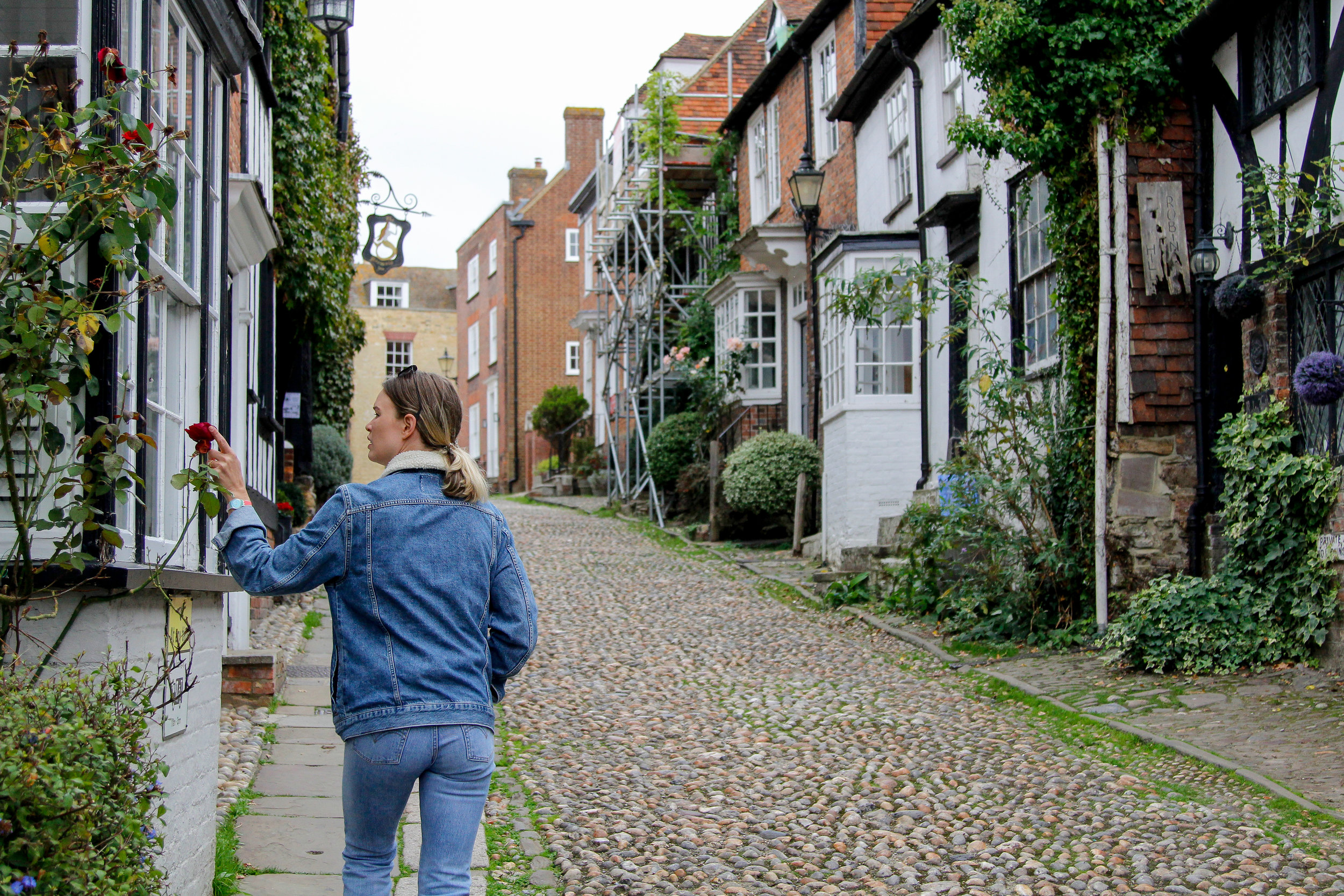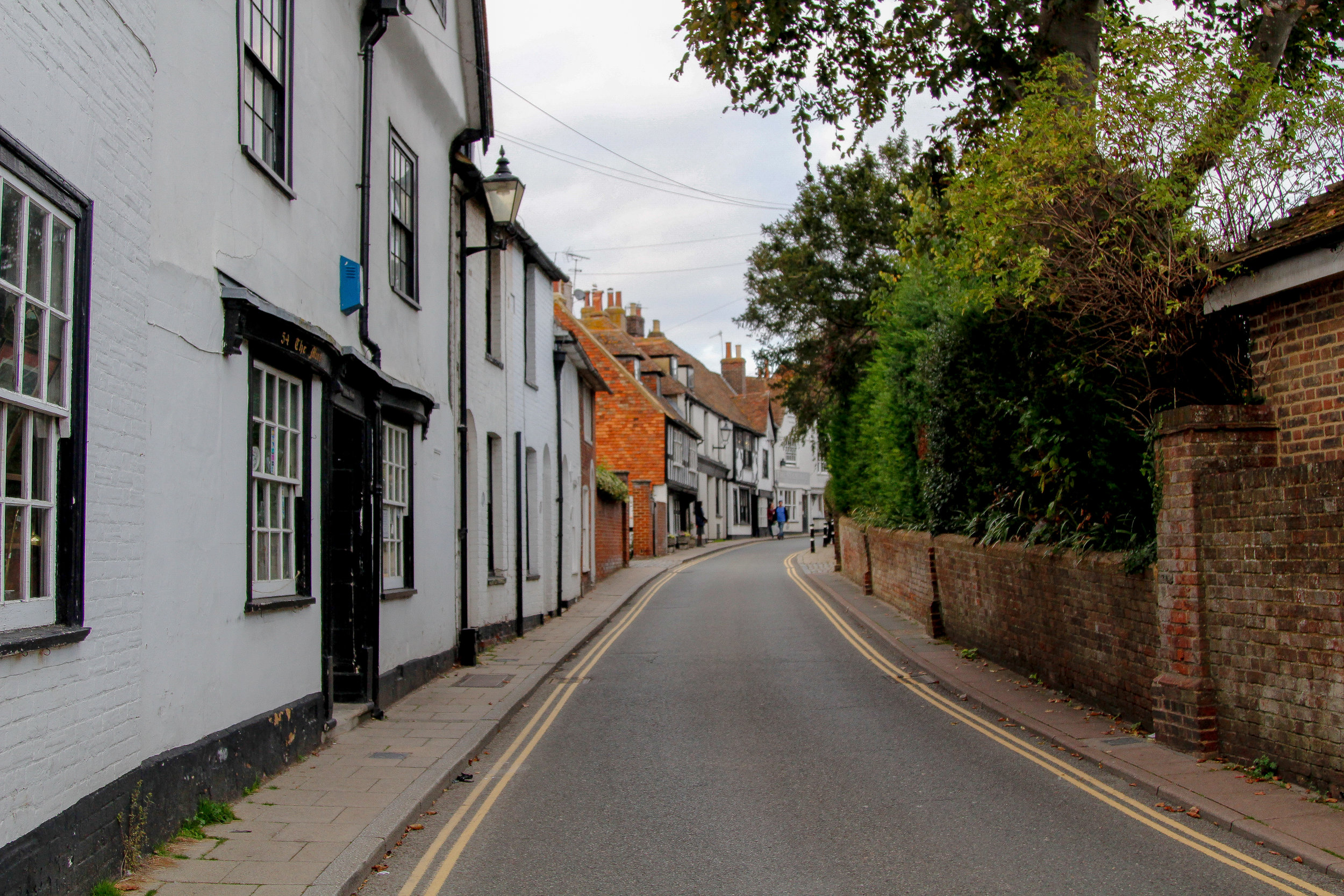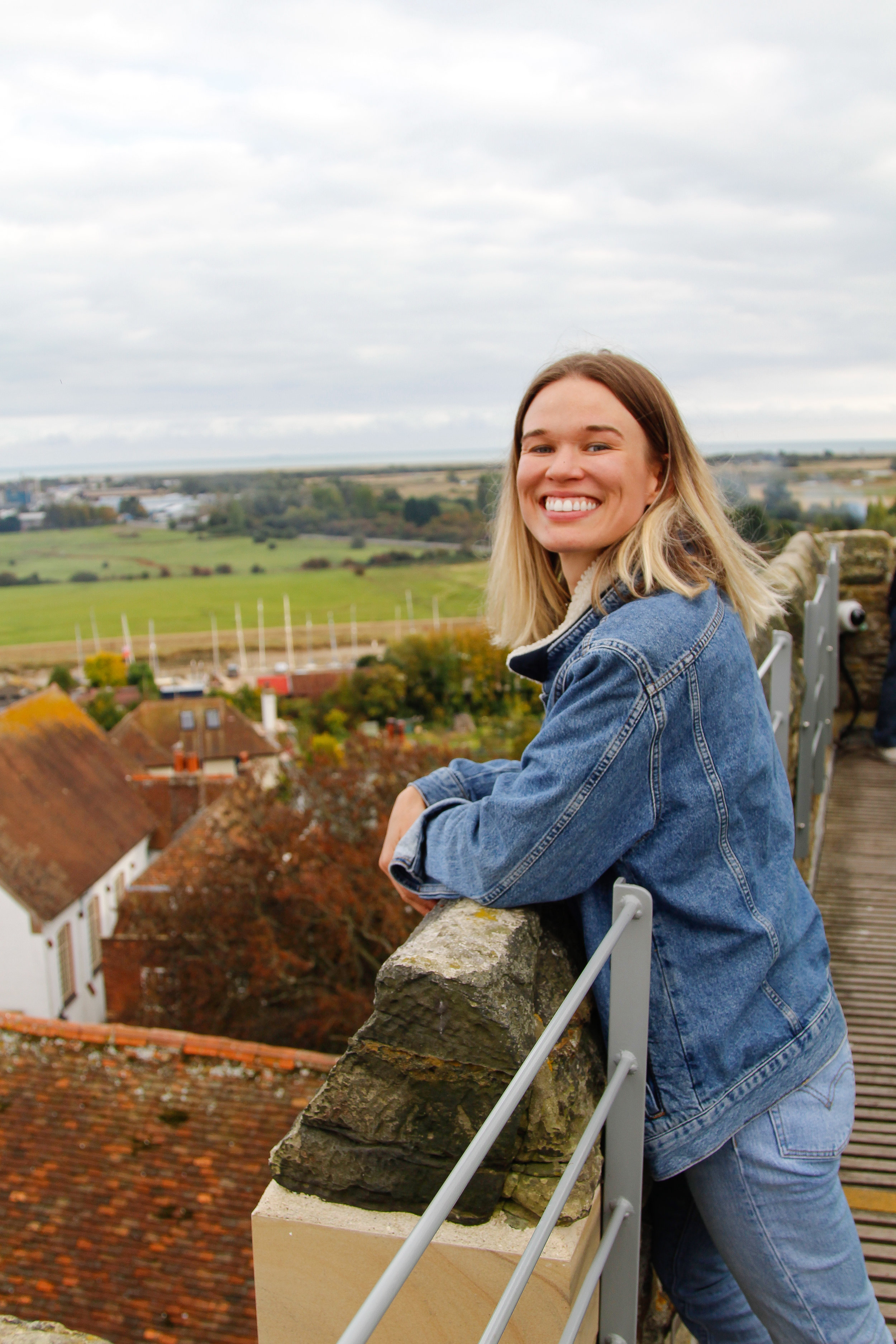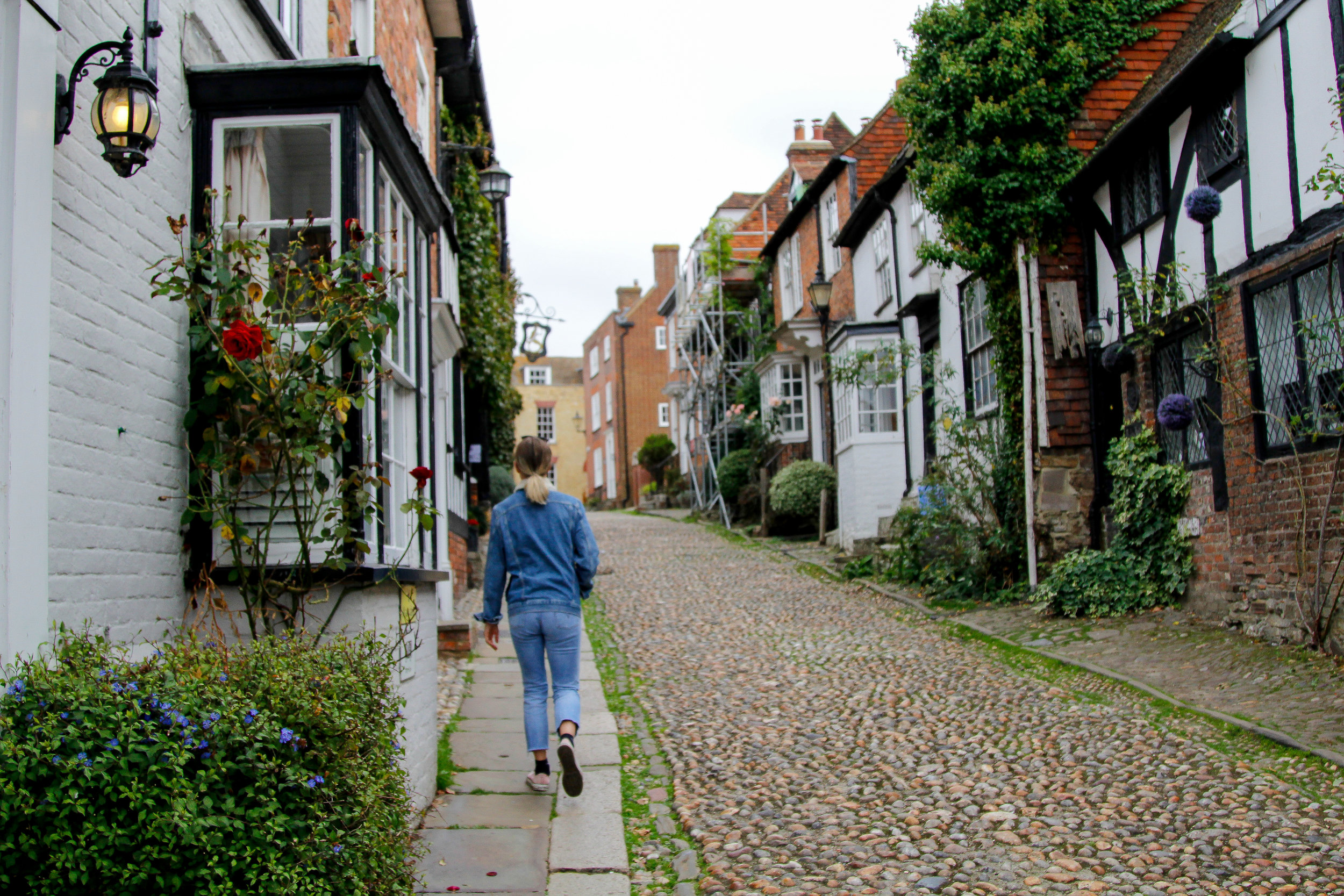I keep a lot of lists. It’s something I’ve inherited from my father, though the content of our lists differs greatly. Kept in his front shirt pocket, my father’s are full of reminders and to-do’s. And mine, certainly, always have to do with books. Books that I’ve read, books that I’d like to read, and, my favorite of all, travel destinations inspired by stories I hold dear to my heart.
That last list—travel destinations inspired by books—is how I came to visit Rye this past October.
Years ago, I picked up a novel called The Summer Before the War. It was set in Rye, East Sussex, and the author’s words conjured a town so charming and so seemingly British that I was compelled to visit one day. And so, my Book Travel List was born.
I became giddy with the prospect of crossing Rye off of my travel list when I booked a stay in London this fall. The stars so aligned that my dear friend Emma was going to be in London at the same time, and I asked her to join me for an overnight trip to Rye. Weeks later, we met at St. Pancras Station in London to begin our adventure.
The journey was easy enough. It took just over an hour by train, with one transfer at Ashford International. There’s a sort of renewing energy that comes with train travel, I think, in watching urban smoke stacks turn into rolling green hills through your window as you leave the city behind.
An hour and fifteen minutes later, we found ourselves at the train station in Rye. We meandered up a small hill that brought us to the base of Mermaid Street, a cobbled, curving road that is home to The Mermaid Inn, our home for the night.
The Mermaid Inn was established in the 12th century, burned down in the 14th century, and rebuilt in 1420. It was popular amongst sailors in the 1400s, a sanctuary for Catholics fleeing persecution in the 1500s, and became a stronghold for the Hawkhurst Gang, a menacing group of smugglers, in the 1700s. There’s a myriad of secret tunnels running throughout and beyond the inn, connecting rooms and passages out to The Mint, a street to the north of Mermaid Street. It is the ghosts of these smugglers, their wives, mistresses, and children, that are storied to haunt the inn today.
We enjoyed our stay at the historical Mermaid Inn—though I will say I barely slept a wink, scared as I was of coming across a ghost—and I’d definitely recommend it to anyone visiting Rye. If you’re looking for something a bit more upscale and ghost-free, I’d recommend staying at The George.
Most of our short trip in Rye was spent wandering through the streets, popping into shops, and trying whatever was on tap at the (abundance of) local pubs. We enjoyed lunch at The Ship Inn, dinner back at the Mermaid Inn, and tea at Cafe Zara.
The best thing about Rye is the pride that its residents take in the town. Many of the homes have cheeky names on display, like The House with the Seat or The House with Two Front Doors. Almost every shop window and street corner is decorated with some type of plaque or hand-written sign detailing the history that occurred at that specific place, hundreds of years ago. Queen Elizabeth I visited Rye in 1573, and much of the town still celebrates her presence today. It’s heartwarming to see a town so well cared for, and, as visitors, it was nice to have so much history laid out in front of us.
The second best thing? The town was pretty devoid of tourists. Granted, we were there midweek, but still. I’d been in Bath a couple of days before, and there were loads of tour busses dropping people off in droves. It was nice to feel as though we had Rye to ourselves—there weren’t crowds, there weren’t lines, and whenever we wanted to see something, our view was not obscured.
Like when we went up to the observation deck at the 900-year-old St. Mary’s Church: we tucked through narrow halls and climbed steep flights of stairs past massive church bells and came upon beautiful, 360-degree views of Rye, all without another person in sight. Or when we visited Ypres Tower, the local castle-turned-jailhouse—we were just able to walk in, pay a couple of pounds, and explore the buildings at our own leisure.
Rye is rich in history, scenery, and charm. It’s perfect for a quiet getaway; small enough for a day trip but has enough to offer if you’re looking to stay a bit longer. There’s easy access to the outdoors and plenty of pubs or cake cafes to nestle into if you’d rather stay inside. You can indulge in fine dining or relax into a basket of fish & chips—the town offers options for both. If you’re in England and have time to explore the countryside a bit, I wholeheartedly recommend visiting Rye. It most certainly lived up to my hopes inspired by The Summer Before the War, and I’m thrilled that my Book Travel List hasn’t yet led me astray.
Here are my recommendations for your trip:
Accommodation: The Mermaid Inn or The George in Rye
Dining: The Ship Inn, The Mermaid Inn, Simon the Pieman
Attractions: The Tower at St. Mary’s Church, Lamb House, Ypres Tower


























